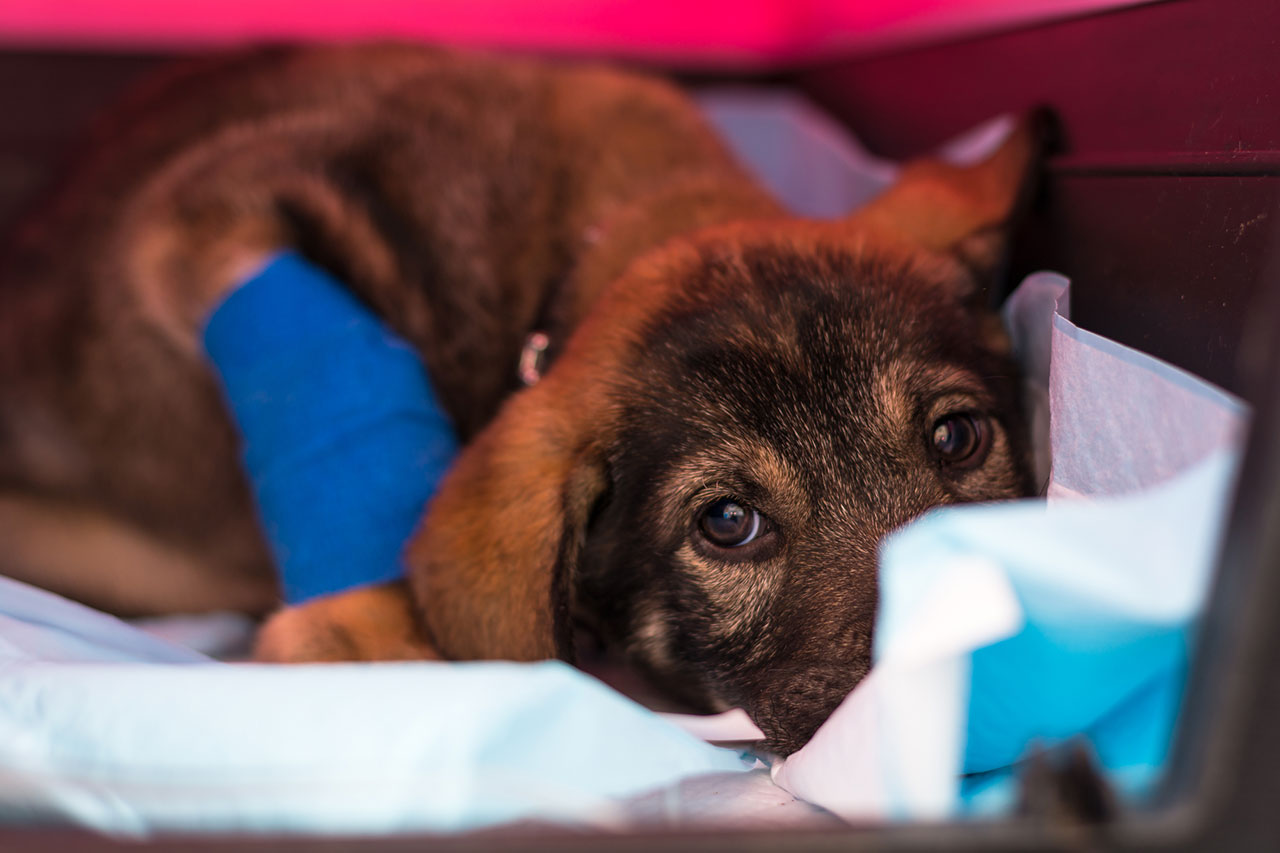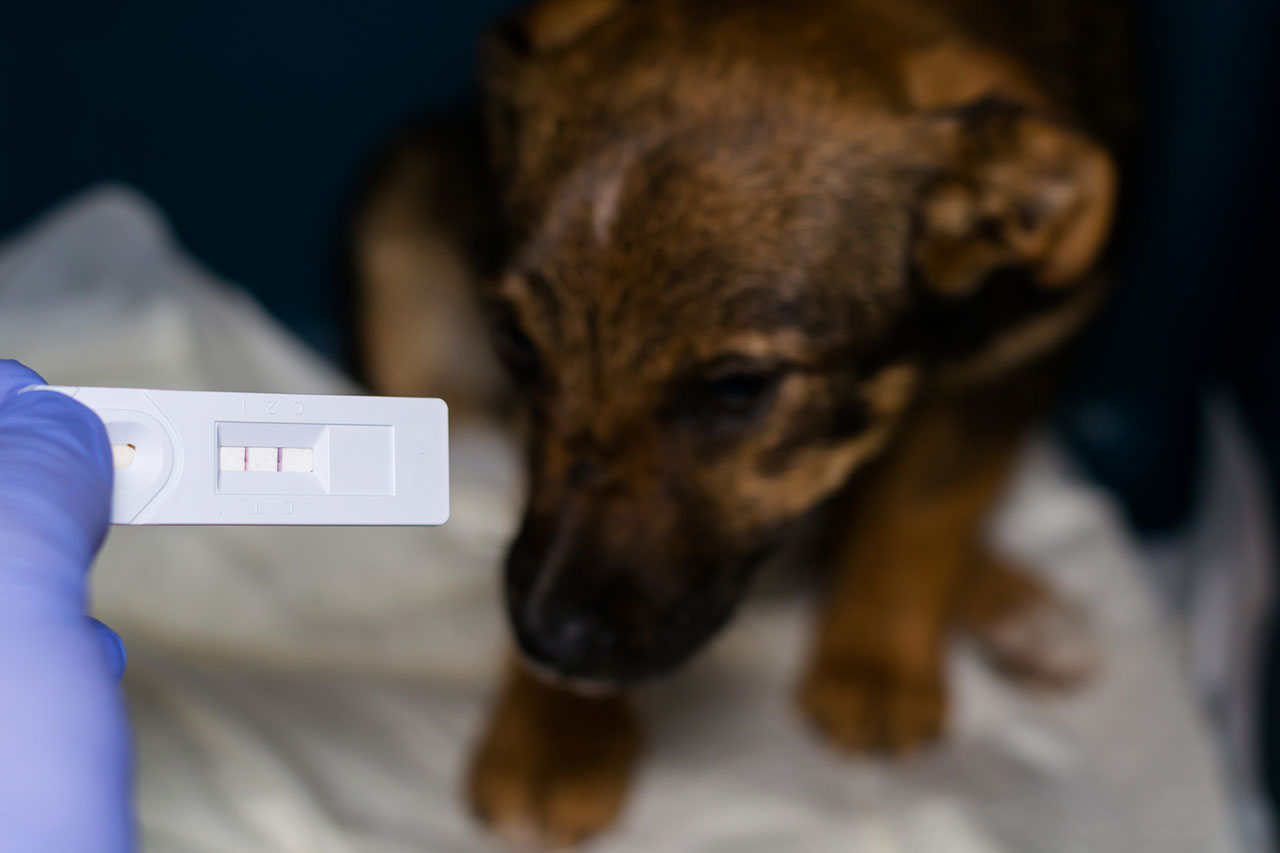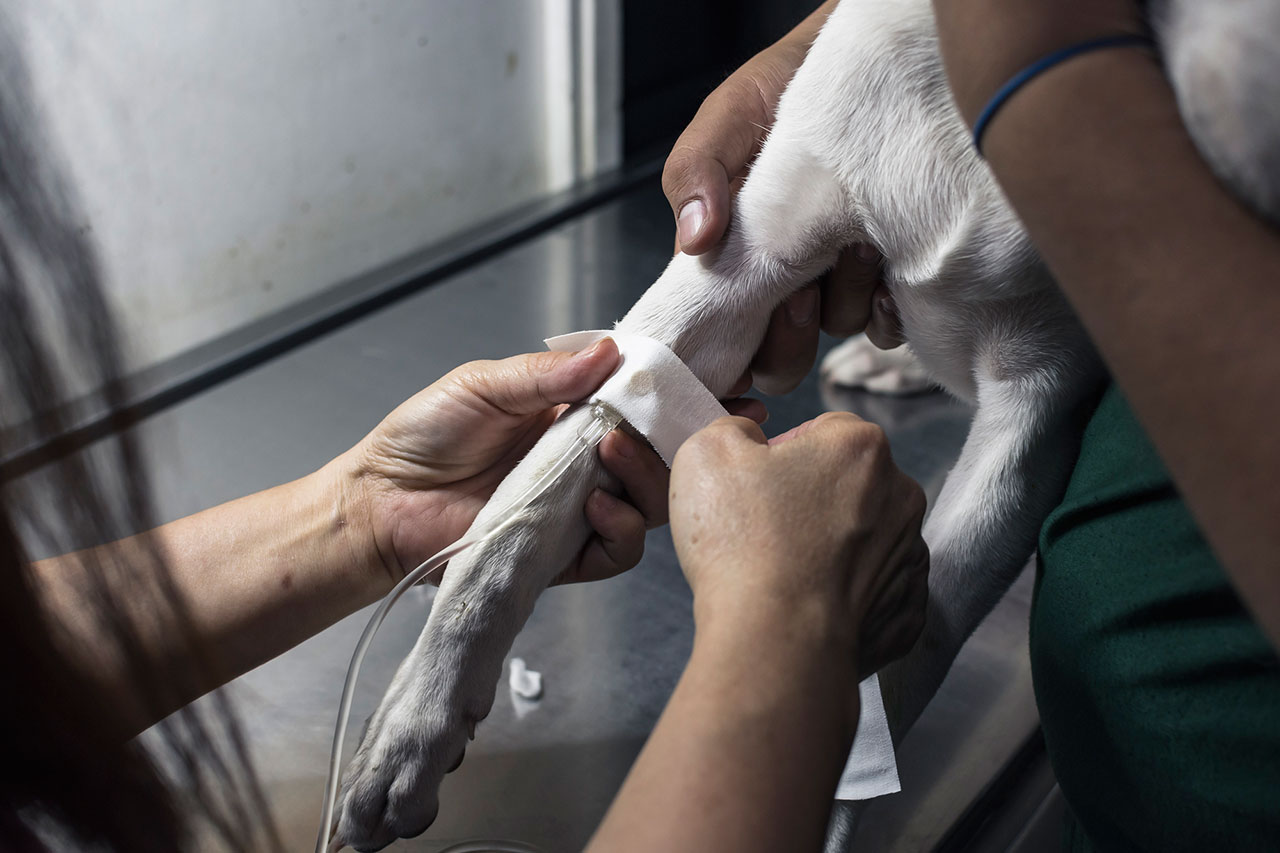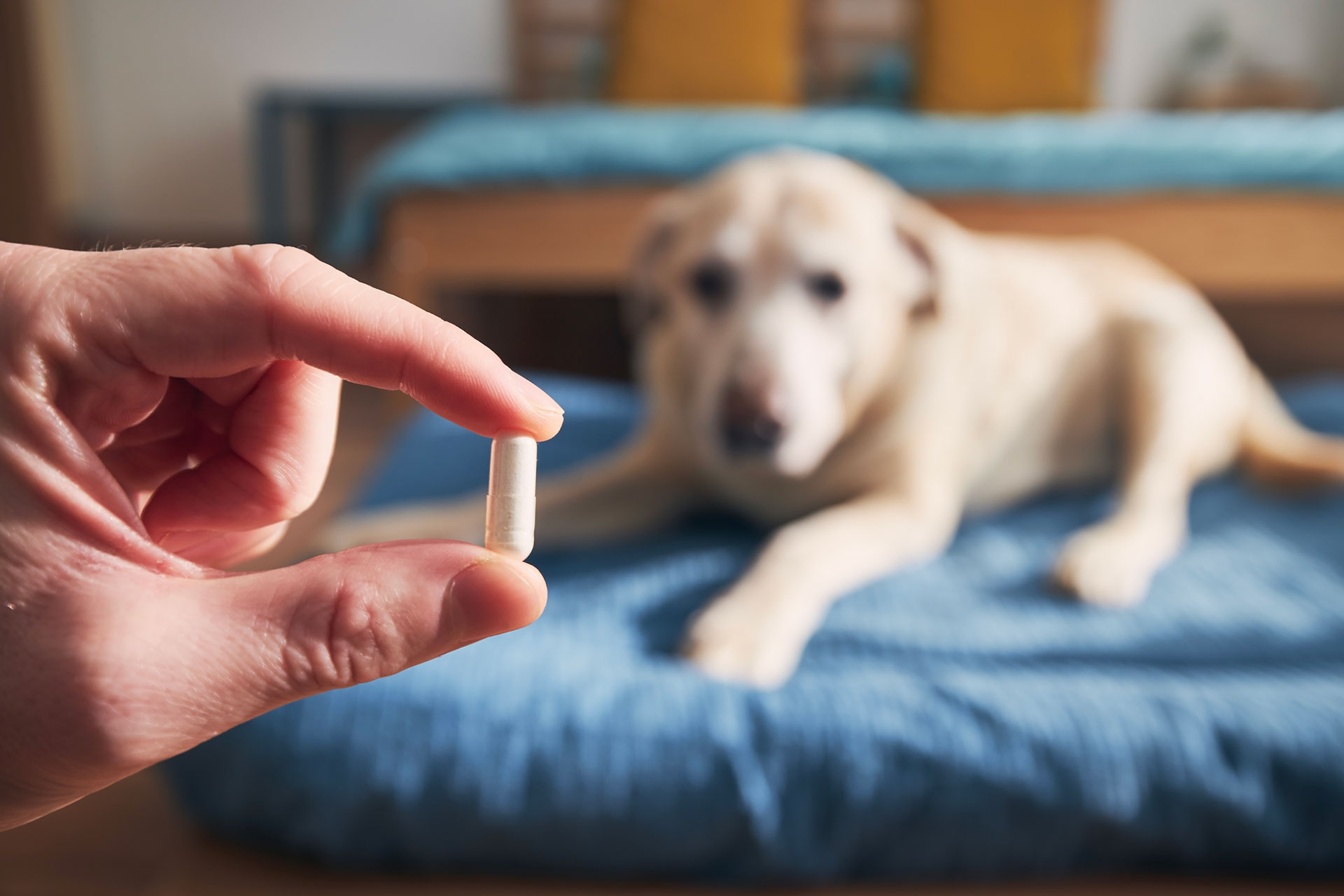Can Dogs Get Parvo Twice?
What is the Parvo Virus?
The virus called Parvo destroys the cells in a dog’s small intestines, which can cause fatal dehydration and other complications on your dog’s immune system. This contagious disease can be passed on by coming into contact with an infected dog’s feces or by touching contaminated objects or surfaces. The danger of catching Parvo is greatest in young dogs, and symptoms often manifest 3–7 days after exposure.
Can a Dog Get Parvo More Than Once?
There are many misconceptions about this virus and its effects on dogs. For example, some people believe that their dog is immune to the virus after they have already contracted it and recovered, but this is not always the case. Dogs can contract Parvo multiple times in their entire life, and it is important to be aware of these clinical signs to get your dog the treatment they need as soon as possible.
When a dog contracts Parvo, bringing them to a veterinarian immediately is the best way. If you delay, the infection may become lethal or cause significant harm to your dog’s intestinal wall and other organs. While there is no cure for Parvo, early treatment and proper vaccination can improve your dog’s chances of recovery. Treatment typically involves hospitalization and intensive supportive care.
If your dog has already had Parvo once, they are not necessarily immune to it. In addition, the virus can mutate and become more virulent over time, so even if your dog has recovered from Parvo, there’s still a small risk of contracting this severe illness again.
Signs of Parvo Virus
Infected dogs who contract the virus experience severe diarrhea, vomiting, and weight loss. Without treatment, the virus can be fatal. If your dog has contracted the virus for a second time, chances are high that it will not survive. Make sure you know all the symptoms of this contagious virus so that you can get intensive care for your furry friend as soon as possible!
1. Diarrhea: Canine parvovirus causes severe diarrhea in dogs, which can often be bloody. This is caused by the virus attacking the cells lining the intestines, causing them to break down and bleed.
2. Vomiting: Like diarrhea, vomiting is another symptom caused by the destruction of intestines cells. The virus causes the muscles of the intestine to contract violently, resulting in vomiting.
3. Weight loss: Because of diarrhea and vomiting, infected dogs will lose a significant amount of weight. In advanced cases, dogs may become emaciated (skinny and frail-looking).
4. Loss of appetite: Due to intestinal damage, unvaccinated puppy with Parvovirus infection will have a decreased appetite and may refuse to eat altogether.
5. Dehydration: Diarrhea and vomiting can lead to dehydration, which can be severe in young puppies who are already at high risk for dehydration due to their small size.
6. Lethargy: Dogs with Parvo often appear lethargic and tired. Dehydration, a lack of appetite, and intestinal injury are probably to blame for this.
7. Fever: A fever is often one of the first symptoms of Parvo and may be present before any other symptoms appear.
8. Panting: Due to the fever and overall discomfort, dogs with Parvo may pant excessively.
9. Abdominal pain: The intestinal damage caused by Parvo can be very painful for dogs. They may whine or cry when their abdomen is touched.
10. Death: In severe cases, Parvo can be fatal. Without treatment, the virus can cause extreme dehydration, weight loss, and intestinal damage that leads to septic shock. Septic shock is a life-threatening condition when the infection spreads throughout the body and damages multiple organs.
Early diagnosis and treatment and parvo vaccinations are critical for dogs with Parvo, as the virus can progress quickly and be fatal within days.
What Should You Do If Your Dog Is Suffering From Parvo For a Second Time?
A dog contracting Parvo the second time around can be a cause of sudden death. But with proper care and treatment, it is possible for a dog to make a full recovery. The following ten actions should be taken if you suspect your dog has Parvo for a second time.
1. Take them to the vet immediately. First, you should get your dog checked out by a veterinarian if you suspect Parvo. Early detection is crucial and can make a big difference in their chances of recovery.
2. Get them started on treatment right away. Infected dog will need to start treatment right away. This may include antibiotics, IV fluids, and other supportive care.
3. Keep them isolated. Once your dog has Parvo, it is important to keep them isolated from other dogs to prevent the spread of the virus. This entails utilizing different utensils, beds, and toys as well as keeping them in a distinct room or region of the house.
4. Keep them hydrated. One of the major worries with Parvo is dehydration, which can swiftly result in catastrophic consequences. If your dog isn’t drinking on their own, give them frequent small amounts of fresh water to ensure they have access to plenty of it.
5. Monitor their appetite. It is common for dogs with Parvo to lose their appetite, so it is important to monitor their food intake closely. Offer small meals frequently and try different types of food to see what they will eat.
6. Keep them clean. Diarrhea and vomiting are common symptoms of Parvo, so keeping your dog clean is important to prevent infection. Any spills should be cleaned up with warm water and mild soap and then thoroughly dried.
7. Keep an eye on their symptoms. Parvo can cause a variety of symptoms, so it is important to keep an eye on your dog for any changes. This includes monitoring their energy level, appetite, bathroom habits, and overall condition.
8. Be prepared for the worst. Unfortunately, despite treatment, some dogs with Parvo do not make a full recovery. It is important to be prepared for this possibility and have a plan in place in case your dog does not improve.
9. Get vaccinated. Once your dog has recovered from Parvo, it is important to get them vaccinated to prevent future outbreaks. There are two vaccine types available, and your veterinarian can assist you in determining which is best for your dog.
10. Practice good hygiene. Finally, it is important to practice good hygiene to prevent the spread of Parvo. This means washing your hands thoroughly after handling your dog and their things, as well as cleaning and disinfecting infected environment that they may have come into contact with.
Parvo is a severe disease that can be fatal to canine population, but with early detection and treatment, many dogs have been known to make a full recovery and got their normal life back. If you think your dog has contracted Parvo for the second time around, it is important to remember these tips.
Medical Treatments For Parvo Virus
It is crucial for pet owners to be knowledgeable about the many therapies available in case their furry pets get the illness. Treatment options vary but typically include antibiotics, IV fluids, and in some cases, surgery. Learn more about the different treatments available for Parvo and how to best care for your pet if they contract the virus.
1. Antibiotics: One of the most common treatments for Parvo is antibiotics. This is because the virus can cause severe gastrointestinal issues, and an infection can quickly develop. Antibiotics help to fight the infection and can be given orally or intravenously.
2. IV Fluids: IV fluids are often used in conjunction with antibiotics to treat Parvo. This is because the virus can cause dehydration, which can be very dangerous. IV fluids help to keep your pet hydrated and also provide nutrients and electrolytes that may be lost due to vomiting and diarrhea.
3. Surgery: In some rare cases, surgery may be required to treat Parvo. This is typically only done in severe cases where the intestines have been damaged by the virus. Surgery helps repair any damage and removes any blockages that may have developed.
4. Pain Medication: Parvo can be a very painful virus for dogs to experience. As such, pain medication is often used in conjunction with other treatments to help make your pet more comfortable.
5. Anti-vomiting Medications: Vomiting is one of the most common symptoms of Parvo and can lead to dehydration very quickly. Anti-vomiting medications can help to control this symptom and prevent dehydration.
6. Anti-diarrheal Medications: Diarrhea is another common symptom of Parvo and, like vomiting, can lead to dehydration if not controlled. Anti-diarrheal medications can help to control this symptom and prevent dehydration.
7. Intestinal Protectants: The virus can cause severe damage to the intestines, so intestinal protectants are often used in treatment. These help to coat the intestines and protect them from further damage.
8. Nutritional Support: Parvo can cause a loss of appetite, leading to weight loss and malnutrition. Your pet can benefit from nutritional support in the form of supplements or foods that have been particularly made to ensure that they receive the nutrients they require.
9. Fluids Under the Skin: In cases where IV fluids are not possible, fluids may be given under the skin. This helps to hydrate your pet and can also provide nutrients and electrolytes.
10. Blood Transfusions: In severe cases, Parvo can cause anemia. This is a condition where there is not enough oxygen in the blood. A blood transfusion can help to treat this by providing healthy red blood cells.
The different treatments for the parvo virus can be very effective in helping your pet recover from the virus. To determine your pet’s best course of action, it is essential to speak with your veterinarian because every situation is unique. Many pets that receive quick, effective treatment for Parvo recover completely.
Home Remedies That Can Help Treat or Prevent Parvo Virus in Dogs
This deadly virus affects the gastrointestinal system of dogs and can often be fatal. In the event that your dog contracts an illness, there are a few things you can do to help them and prevent subsequent infections. These are a few:
1. Home Remedies for Dehydration
One of the primary issues with the parvovirus is dehydration since it can cause severe gastrointestinal distress and even mortality. Therefore, it is important to keep your infected puppy hydrated if infected with the virus. You can do this by frequently giving him small amounts of water or electrolyte solutions throughout the day. You can also make homemade chicken or beef broth and offer this to your dog in small amounts.
2. Home Remedies for Fever
Fever is another common symptom of Parvo Virus and can be very dangerous if left untreated. You can help to bring your dog’s fever down by applying a cool, damp cloth to his forehead or chest. It’s also a good idea to give him a few ice cubes to lick. If your dog’s fever is very high, you should take him to the vet as soon as possible.
3. Home Remedies for Nausea and Vomiting
Two other typical Parvo Virus symptoms are nausea and vomiting. To help settle your dog’s stomach, you can give him small amounts of bland food such as boiled chicken or rice. He can also receive probiotics, which will aid in reestablishing the beneficial bacteria in his digestive system.
4. Home Remedies for Diarrhea
Diarrhea is another common symptom of Parvo Virus and can lead to severe dehydration. To help treat diarrhea, you can give your dog small amounts of bland food or homemade chicken or beef broth. You can also give him probiotics and offer him lots of fluids. If your dog’s diarrhea is severe, you should take him to the vet as soon as possible.
5. Prevention of Secondary Infections
It is important to prevent secondary infections when your dog has Parvo Virus, as these can be very dangerous. To do this, you should keep his environment clean and disinfected and ensure he has plenty of fresh water to drink. Additionally, you ought to wash your hands after interacting with him or everything he has touched.
Overall, many home remedies can help treat or prevent Parvo Virus in dogs. However, taking your dog to the vet as soon as possible is still important if you suspect he has the virus. Following these tips can help your dog recover from this deadly virus.
Dogs that get Parvo twice are much more likely to die from the virus. Therefore, if your dog has contracted Parvo, it is important to take all of the precautions necessary to ensure they do not come into contact with the virus again.





